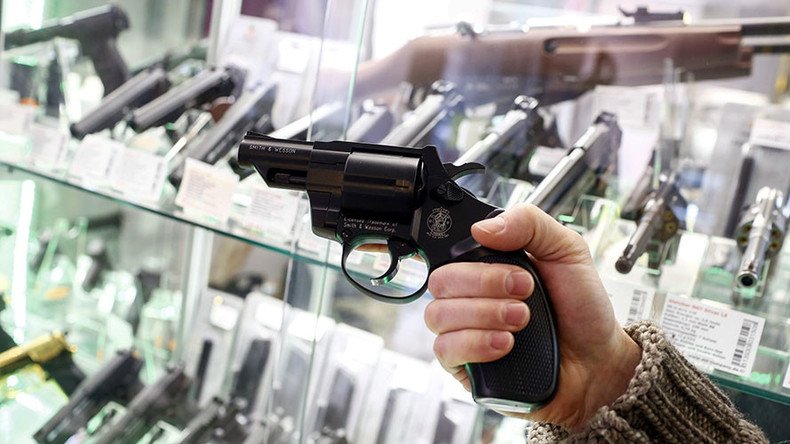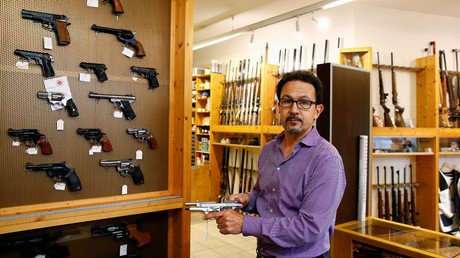EU agrees on tougher gun laws amid increased terror threat

EU states have reached an agreement on stricter gun controls following a wave of attacks which have terrorized Europe over the past two years. The move aims to limit the means by which extremists could obtain deadly weapons legally.
The EU Commission announced that 28 members reached a political agreement with the European Parliament to tighten gun control laws which have been in place since 1991. The debate on stricter gun control measures has persisted since 2015, following the Paris attacks, which left 130 people dead.
#Firearms Provisional agreement by @Europarl_EN & @EUCouncil on Commission's proposal to increase citizens' security https://t.co/zgXrY8vqpA
— European Commission (@EU_Commission) December 20, 2016
“After a year of discussions, the European Parliament and Council have reached a provisional political agreement on the Firearms Directive,” the commission said in a press release.
The main changes to the Firearms Directive include placing a ban on semi-automatic firearms.
“These include automatic firearms transformed into semi-automatic firearms, long semi-automatic firearms of length less than 60cm, long semi-automatic firearms with loading devices of more than 10 rounds, and short semi-automatic firearms with a loading device of more than 20 rounds,” the Commission stated.
At the same time, the European Commission said it “regretted” that AK47s and AR15 rifles had not been not covered by the deal.
The new regulation also seeks to place limits on “alarm and acoustic weapons”, as well as deactivated weapons.
Lawmakers argue that an acoustic or salute weapon, designed to shoot blanks, can be easily re-transformed into a fully working gun. The same case can be made for a once-deactivated gun that could be transformed to fire at people.
To limit the dangers of such weapons’ metamorphoses, states will be required to subject those types of potentially lethal devices to declaration, authorization or licensing.
Furthermore, the new regulations seek to impose stricter conditions on the online acquisition of firearms and ammunition. In addition, the new controls attempt to establish a “system of exchange” of information between member states and create a set of conditions for medical tests required to allow firearm authorization.
“This agreement provides for tighter controls which will help prevent the acquisition of firearms by terrorist and criminal organizations,” said Slovak Interior Minister Robert Kalinak, whose country holds the rotating EU presidency.
READ MORE: Merkel ally demands revision of refugee policy following Berlin terrorist attack
The agreement will be subject to confirmation by the European Parliament's Internal Market Committee in January. After that, the new regulations will be put to a European Parliament plenary vote before proceeding to be formally approved by the EU Council of Ministers.
“We have fought hard for an ambitious deal that reduces the risk of shootings in schools, summer camps or terrorist attacks with legally held firearms. Of course, we would have liked to go further, but I am confident that the current agreement represents a milestone in gun control in the EU,” said the President of the European Commission Jean-Claude Juncker.














